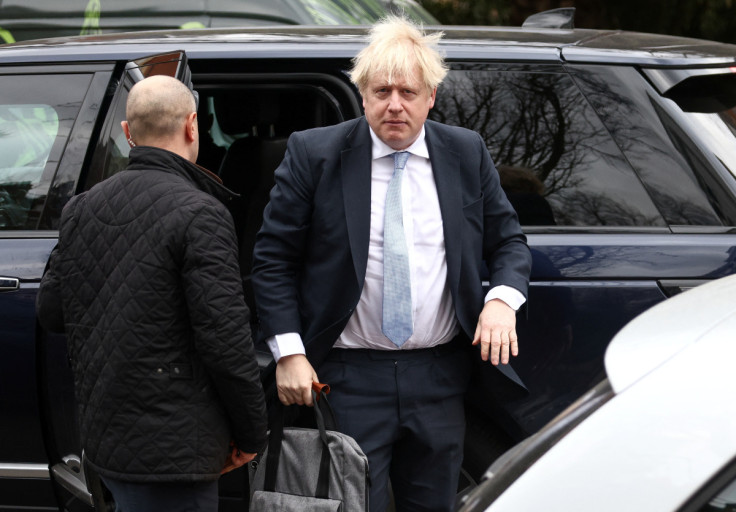Ex-PM Boris Johnson Attacks Rishi Sunak's New Brexit Deal
This week, Sunak revealed new arrangements to remove routine checks on goods moving from Great Britain (GB) to Northern Ireland (NI), known as the "green lane".

ex-PM Boris Johnson has attacked Rishi Sunak's new Brexit deal with the DUP, warning that it could force the UK to abide by EU trade rules in the future.
This week, Sunak revealed new arrangements to remove routine checks on goods moving from Great Britain (GB) to Northern Ireland (NI), known as the "green lane", in a bid to restore power-sharing at Stormont.
Checks required under the previous agreement, which mandates percentages of goods to be inspected in NI as they arrive from GB, will be reduced and rebranded as the "UK internal market system".
However, despite the tweaks effectively being an extension of his own deal, Johnson has joined Tory rebels in claiming the new arrangements could thwart Britain's post-Brexit "freedom" to diverge from EU rules.
"We must retain the appetite and the courage to diverge from the low-growth high-regulation European model," said Johnson on X, formerly Twitter.
"We must at all costs avoid a return to anything remotely like the disastrous 'Chequers' formula, whereby artificial concerns about the border between Northern Ireland and Ireland are used to keep the whole of the UK in alignment with EU rules."
The former PM has repeatedly attacked Sunak since he was kicked out of No. 10 – last month he publicly criticised the government's Rwanda deal and said he would not support it unless it was amended.
Johnson's former Brexit negotiator Lord David Frost – believed to be part of a small cabal of right-wing MPs and ex-advisers plotting to bring down Mr Sunak – said he agreed with the former PM.
The trouble-making Tory peer warned that the new agreement with the DUP should not "slow" the push to diverge from the EU.
Under the new deal set out in Sunak's "Safeguarding the Union" paper, the "red lane" for transporting goods from GB to NI, and then on into the EU single market in the Republic of Ireland, will remain.
But the government stressed that as routine checks will be removed from the "green lane" on goods, and replaced with only occasional checks when "smuggling and disease risks", they estimate that 80 per cent of goods will now move freely.
Sunak has also pledged to amend domestic law - specifically a section of the EU (Withdrawal) Act – to affirm the fact that new EU laws will not automatically apply in NI, and must first be subject to oversight by Stormont.
In a bid to keep both the DUP and Brexiteers happy in allowing UK-wide divergence from EU standards, there is also a legal requirement that any new legislation is assessed as to whether it "impacts on trade between Northern Ireland and Great Britain".
However, former home secretary Priti Patel and former business secretary Sir Jacob Rees-Mogg challenged Northern Ireland secretary Chris Heaton-Harris to explain how the UK would be able to diverge on EU rules without risking arrangements for Northern Ireland.
Mr Heaton-Harris insisted that the deal did not "change the freedoms and powers we have secured through Brexit".
The minister added: "It will not reduce our ability to diverge, nor our commitment to do so, should it be in the interest of the United Kingdom."
Criticism of the deal represents the latest challenge facing Sunak after he survived a backbench rebellion last month over his Rwanda deal, and a plot to oust him as leader by disillusioned Tory MPs.
The PM is required to call an election before the end of 2024, and recent polling indicates the result would be a Labour landslide.
A YouGov survey of 14,000 respondents forecasted that the Tories will hold on to just 169 seats, while Labour will claim 385.
This would deliver Sir Keir Starmer's party a majority of 120 seats in the upcoming General Election.
© Copyright IBTimes 2025. All rights reserved.






















